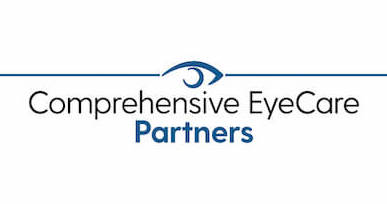
Today, diabetes is one of the most common health conditions affecting Americans of all ages. To raise awareness and promote education about eye-related complications of this prevalent disease, the American Academy of Ophthalmology has established November as Diabetic Eye Disease Awareness Month.
Keep reading to learn more about Diabetic Eye Disease Awareness Month!
What is Diabetic Eye Disease?
A diabetes diagnosis can means more than controlling your blood sugar with insulin, diet, and exercise. You also have to be aware of the symptoms of diabetes-related health complications.
While the high blood sugar levels characteristic of diabetes can lead to several serious health conditions, one of the most common is diabetic eye disease. The complications of diabetes can cause serious eye conditions, which can lead to vision loss, including diabetic retinopathy, macular edema, cataracts, and glaucoma.
Among the possible eye conditions that can affect people with diabetes, diabetic retinopathy is the most common. Diabetic retinopathy is caused when high blood sugar damages the blood vessels in the retina.
These damaged blood vessels can leak and swell, resulting in blurry vision or the blockage of blood flow to the eye altogether. While the blood vessels will sometimes regrow, the new vessels are often irregular and cause further vision problems.
What Are the Symptoms of Diabetic Retinopathy?
Diabetic retinopathy is usually asymptomatic at first, so if you have diabetes, it is essential to have your eyes checked regularly for signs of this vision-damaging condition. Symptoms often do not start until the eye condition is in the advanced stage.
These symptoms include blurry vision, floaters, color blindness, impaired fields of vision, and eventually, vision loss. When caught early, there are treatments for diabetic retinopathy that can repair existing damage to the eyes and prevent blindness.
Laser therapy, also called laser photocoagulation, can create a layer of scar tissue in the eye, which slows the regrowth of irregular blood vessels. VEGF medications can slow or reverse the disease, corticosteroid injections can reduce inflammation, and eye surgeries can remove all or part of the vitreous, the gel-like fluid which fills the eye, or reattach retinas.
Other Eye-Related Complications of Diabetes
In addition to diabetic retinopathy, diabetes can cause other serious eye conditions, including macular edema. Macular edema is often a complication of diabetic retinopathy.
Diabetes can also cause neovascular glaucoma, a more severe form of secondary glaucoma in which newly formed blood vessels impair vision. It can also cause a retinal detachment, which occurs when scars caused by damaged blood vessels pull on and detach the retina.
Another common complication of diabetes in the eye is cataracts, which are more likely to develop at an earlier age in people with diabetes. As with many health complications and conditions caused by diabetes, the best treatment for diabetic eye disease is prevention.
You can lower your risk of vision loss by keeping your blood sugar levels in the target range, managing your blood pressure and cholesterol levels, quitting smoking, eating a proper diet, and being physically active every day.
Getting regular eye exams is of equal importance to the health of your eyes if you have diabetes. Because the eye conditions caused by diabetes often have no symptoms in the early, treatable stages, it is usually an eye care provider who first sees the signs of the condition.
Prioritizing eye care and staying informed about the risks and signs of diabetes-related eye disease is your best chance of preventing vision loss to diabetic eye disease!
Do you want to learn more about diabetic eye disease or if you are at risk for the eye condition? Schedule an appointment at Shepherd Eye Center in Henderson, NV, today!


